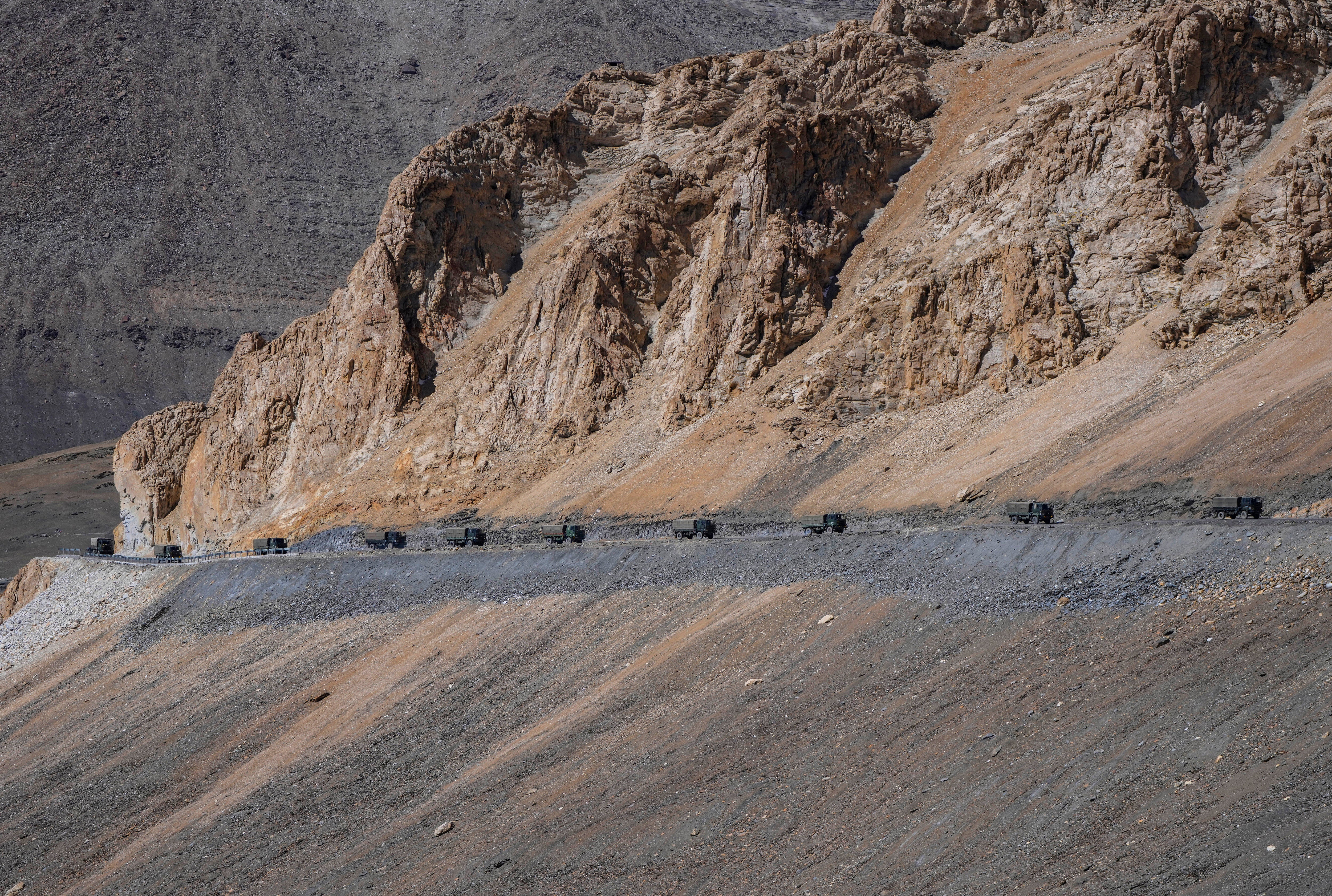India and China pledge to maintain 'peace and tranquility' along disputed border despite tensions
Chinese and Indian military commanders have pledged to “maintain the peace and tranquility” along their disputed border in an apparent effort to stabilize the situation following a rise in tensions

Chinese and Indian military commanders pledged to “maintain the peace and tranquility” along their disputed border, China's Defense Ministry said, in an apparent effort by the sides to stabilize the situation after a rise in tensions.
China’s Defense Ministry issued a joint statement on social media late Tuesday saying the 19th round of commander-level talks between the sides held on Sunday and Monday had produced a “positive, constructive and in-depth discussion” centered on resolving issues related to the Line of Actual Control in the border’s western sector.
The statement said they “agreed to resolve the remaining issues in an expeditious manner,” but there is no indication that either side is willing to offer concessions. However, both appear eager to avoid the sort of clashes between their troops that have led to bloodshed in recent years.
“In the interim, the two sides agreed to maintain the peace and tranquility on the ground in the border areas,” the statement said.
The Line of Actual Control separates Chinese and Indian-held territories from Ladakh in the west to India’s eastern state of Arunachal Pradesh, which China claims in its entirety. India and China fought a war over their border in 1962. As its name suggests, it divides the areas of physical control rather than territorial claims.
According to India, the de facto border is 3,488 kilometers (2,167 miles) long, but China promotes a considerably shorter figure.
In all, China claims some 90,000 square kilometers (35,000 square miles) of territory in India’s northeast, including Arunachal Pradesh with its mainly Buddhist population.
India says China occupies 38,000 square kilometers (15,000 square miles) of its territory in the Aksai Chin Plateau, which India considers part of Ladakh, where the current faceoff is happening.
China, in the meantime, began cementing relations with India’s archrival Pakistan and backing it on the issue of disputed Kashmir.
Firefights broke out again in 1967 and 1975, leading to more deaths on both sides. They’ve since adopted protocols, including an agreement not to use firearms, but those protocols have fractured.
A clash three years ago in the Ladakh region killed 20 Indian soldiers and four Chinese. It turned into a long-running standoff in the rugged mountainous area, where each side has stationed tens of thousands of military personnel backed by artillery, tanks and fighter jets.
Both India and China have withdrawn troops from some areas on the northern and southern banks of Pangong Tso, Gogra and Galwan Valley, but continue to maintain extra troops as part of a multitier deployment.
In April, India’s defense minister accused China of eroding the “entire basis” of ties between the countries by violating bilateral agreements, during talks with his Chinese counterpart Gen. Li Shangfu.
India says the deployment of a large number of Chinese troops, their aggressive behavior and attempts to unilaterally alter the border status quo violate agreements between the countries.
Li was visiting New Delhi to attend a meeting of the defense chiefs of the Shanghai Cooperation Organization, which consists of China, India, Pakistan, Russia, Kazakhstan, Krgyzstan, Tajikistan and Uzbekistan.
Bookmark popover
Removed from bookmarks